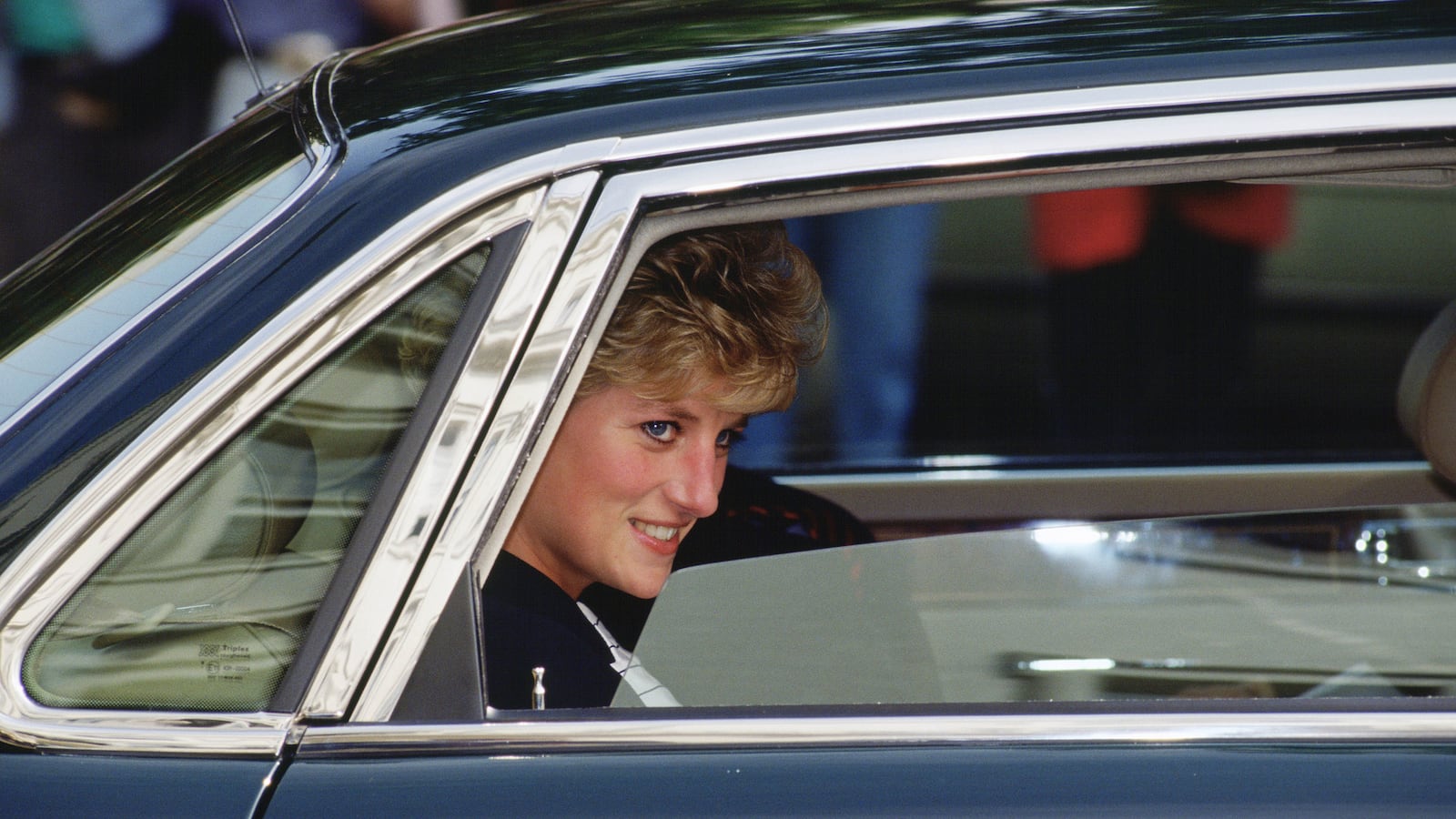
Princess Diana leaked information to the press in an effort to ‘take on’ her husband, Clive Goodman, a former royal reporter at the shuttered tabloid News of The World said in court today.
Diana was sensationally named by Clive Goodman, a defendant, as the source of a 1992 internal royal phone directory found in his possession.
At the phone hacking trial in London today, Goodman said that the high-level phone directory, known as the Green Book, which contained the personal phone numbers of senior royals, was sent under plain cover to his office in an envelope with his name on it. Princess Diana called him in person later that day, asking Goodman whether he received it.
Goodman said, “She was going through a very, very difficult time. She told me she wanted me to see the scale of her husband’s staff and household, compared with others.
“She felt she was being swamped by people close to his household. She was looking for an ally to take him on—to show there were forces that would rage against him.”
“She had a relationship with several journalists,” said Goodman of the call, citing Martin Bashir of Panorama and Richard Kay at the Daily Mail.
Goodman said Diana sent the book because she wanted him to “see the scale of her husband’s household compared to hers” and how she was “being swamped by his household.” He said Diana was looking for “an outlet to take them on,” adding, “They were quite a powerful organization: they still are.”
Goodman denied paying for any of the 15 royal phone books found in his possession when police raided his home in 2006. He also denied using them to hack phones.
Goodman was jailed for four months in 2007 after pleading guilty to intercepting phone messages. He is a defendant in the current trial, facing two counts of conspiracy to commit misconduct in a public office. One of those counts comprises the charge that he bought an Internal Telephone Directory.
The court heard today that when police raided his home they found seven copies of the “Internal Phone Directory” —which lists all numbers at the palace, including administrative and switchboard numbers, and were for “foot soldiers in the Royal Household” and seven copies of the more sensitive ‘Green Book’ which, Goodman said were, “a directory of names addresses and telephone numbers of senior members of Royal Household.” The Green Books contained the private phone numbers of some senior royal family members.
“It sounds very Upstairs/Downstairs” said Goodman’s lawyer, David Spens, QC, of the distinction between Green Books and ITDs: “Yes, very Downton Abbey,” agreed Goodman.
Goodman also said that another directory, from 1988 was given to the News of The World in 1995 by the son of Kenneth Stronach, a disaffected valet to the Prince of Wales. “It became clear his father was thoroughly fed up with working for the Royal Household, and the Prince of Wales in particular,” Goodman said.
Goodman said that “most of the information in the directories could be found elsewhere” and denied ever using information in the Green Books for phone hacking. He said he used them to “get around the press office” and call people direct when he needed to put a story to them out of hours. He said that on the night of Diana’s death, for example, “using the Green Book I was able to contact Sir Robin Janver, the Queen’s private secretary” as, in the middle of the night, “the palace press office was quite frankly useless.”
As late as 2001, there were only six mobile phone numbers listed in the ITD, the court heard. In December the court heard that Andy Coulson, who replaced Rebekah Brooks as editor of News of the World in 2003 was warned by Goodman about the risks they were taking by acquiring the phone directories, let alone using them to hack phones. “These people will not be paid in anything other than cash because if they’re discovered selling stuff to us they end up on criminal charges, as could we,” Goodman allegedly wrote to Coulson, in an email read in court. Coulson, who is alleged to have been conducting an affair with Rebekah Brooks, then the editor of the Sun, at the time, later became Prime Minister David Cameron’s head of communications at Number Ten Downing Street.
Diana’s co-operation with journalists to incriminate the royal family is, of course, legendary. In the most celebrated case, she passed tapes she had recorded to the Daily Mail’s Andrew Morton, in which she laid out in detail her grievances against Prince Charles, and described in detail her suicide attempts and eating disorders.







